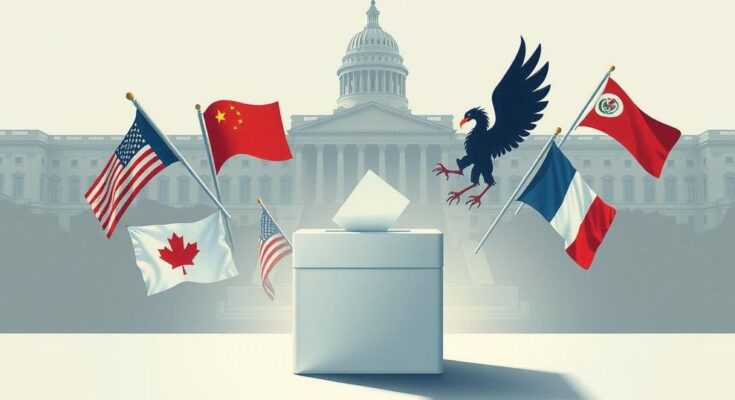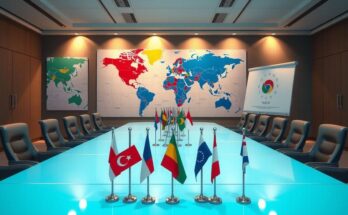Kosovo will conduct parliamentary elections on February 9, with key issues including relations with Serbia, EU integration, and healthcare. Prime Minister Albin Kurti’s party leads in polls, alongside crucial concerns voiced by the youth about education and job creation. The elections feature 27 parties vying for 120 seats, with the EU monitoring the electoral process.
Kosovo is set to hold parliamentary elections on February 9, amid ongoing tensions between the ethnic Albanian majority and the Serbian minority. Key election issues include relations with Serbia, EU integration, education, and healthcare. Current polls indicate Prime Minister Albin Kurti’s party, the Self-Determination Movement (LVV), is leading, followed by the Democratic Party of Kosovo (PDK) and the Democratic League of Kosovo (LDK).
Mitrovica, a city divided between Serb and Albanian populations, exemplifies the ethnic divisions that permeate Kosovo, which is home to about 1.6 million residents. Although approximately 100 nations recognize Kosovo’s independence, Serbia still claims it as part of its territory. Efforts to normalize relations and establish the Association of Serb-majority Municipalities remain stalled due to mutual distrust between both sides.
The European Union (EU) has placed sanctions on Kosovo in 2023 for failing to alleviate tensions, an issue that has become a political tool in the electoral campaign. Alongside security, voters are concerned about infrastructure, education, and social prosperity. Youth, representing 55% of Kosovo’s population, voice strong desires for improvements in these areas.
Younger citizens of Kosovo express the need for governmental focus on education, job creation, and environmental protection. One voter emphasized, “It must be emphasized again and again that we are now in 2025 and, as citizens of the Republic of Kosovo, almost 25 years after the war, we still do not have health insurance.”
The elections will feature a total of 27 parties and one independent candidate competing for 120 seats, with 20 seats designated for ethnic minorities, including half for the Serbian community. As per the latest polls, the LVV leads with 51.2% support. The EU plans to deploy 100 observers to oversee the election process, which has so far unfolded without major incidents.
The upcoming parliamentary elections in Kosovo occur against a backdrop of ethnic tensions and socio-political challenges. Following its declaration of independence from Serbia in 2008, Kosovo continues to grapple with unresolved issues related to its status and relations with Serbia. The election presents an opportunity for citizens to express their views on critical issues such as EU integration and the management of ethnic divisions.
In summary, the parliamentary elections in Kosovo are crucial for addressing the pressing issues of ethnic division, EU integration, and socioeconomic development. The participation of the youth and diverse political parties highlights a significant aspect of the political landscape that demands attention. This election will play a vital role in shaping the future of Kosovo and its relationships, particularly with Serbia.
Original Source: www.dw.com




